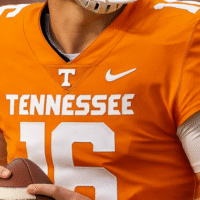BREAKING: NBA Fines Lakers $100K for Violating Player Participation Policy
In a significant development that underscores the NBA’s renewed commitment to enforcing its player participation policy, the league has levied a $100,000 fine against the Los Angeles Lakers for a violation related to player availability. The penalty, announced Monday morning by the NBA league office, reflects the organization’s broader effort to ensure competitive integrity, fan satisfaction, and national television engagement in an era where strategic player rest has become increasingly common.
Understanding the Violation
According to the NBA’s official statement, the Lakers were penalized for violating the league’s player participation policy by sitting multiple star players during a recent nationally televised game. While the league did not disclose specific names in its initial announcement, sources familiar with the situation have confirmed that the violation involved key rotation players who were rested despite being physically fit to play.
The incident reportedly occurred during the Lakers’ recent road game, broadcast as part of a primetime national television doubleheader. Several starters, including at least two designated “stars” under the NBA’s rest policy criteria, were listed as “out” without legitimate medical justification. This decision, according to the league, breached its policy designed to minimize “load management” controversies that have increasingly drawn ire from fans, media partners, and even former players.
The NBA’s Player Participation Policy: A Brief Overview
Introduced ahead of the 2023–24 season, the player participation policy (PPP) was a direct response to rising concerns about the integrity of the regular season product. Under the new policy, teams are discouraged—and potentially penalized—for resting multiple star players in the same game, particularly during nationally televised matchups or in-season tournaments.
The policy defines a “star” as any player who has been an All-Star or All-NBA selection in the past three seasons. It mandates that unless a player is legitimately injured, they must be available for games that have significant implications for league marketing and fan engagement. Exceptions are granted for back-to-back games involving older veterans or players with documented injury histories, but teams must still communicate clearly and transparently with the league office.
The policy has so far seen mixed results. While it has somewhat curtailed obvious cases of mass “DNP-Rest” decisions, teams have become more opaque in how they report injuries. Critics argue that the burden of enforcement still leaves room for manipulation, while defenders say it is a necessary step toward protecting the league’s commercial interests.
Why the NBA Cracked Down on the Lakers
League insiders indicate that the Lakers’ actions were particularly egregious due to a combination of timing and optics. The game in question was scheduled for national broadcast and was billed as a marquee showdown between Western Conference playoff hopefuls. Ticket prices had soared, and fan interest was high—both in the arena and across national broadcast markets.
Instead of fielding their usual core lineup, the Lakers opted to rest several players who were not previously listed on the injury report. Internal league reviews concluded that the rest decisions were not based on medical necessity but rather strategic rest. Such behavior runs counter to the PPP, which explicitly aims to prevent teams from diminishing the fan experience in high-profile games.
NBA Executive Vice President Joe Dumars, who oversees basketball operations and policy compliance, issued a stern warning in the league’s statement:
“We understand the value of strategic rest over the course of an 82-game season, but the integrity of the competition and the interests of our fans must come first. We expect full compliance from all franchises and will continue to enforce this policy vigorously.”
The Lakers’ Response
Shortly after the fine was announced, the Los Angeles Lakers released a brief but pointed statement:
“We acknowledge the NBA’s decision and will comply with the fine. However, we stand by our medical and performance staff, who act in the best interest of our players’ long-term health. Player safety and team readiness remain our top priorities.”
Sources close to the team indicate that Lakers leadership felt “blindsided” by the fine, arguing that the players in question were experiencing fatigue-related symptoms that warranted precautionary rest. Team insiders claim that decisions were made after consulting medical staff and were not intended to violate league policy.
Nonetheless, the $100,000 penalty marks one of the more severe instances of enforcement since the policy’s implementation and sends a clear message to other franchises that the NBA is serious about compliance.
Star Power and Load Management: A Growing Tension
The fine highlights a central tension in today’s NBA: balancing player health with entertainment value. With sports science departments more robust than ever, teams now monitor dozens of physical and psychological metrics to protect player health. “Load management,” once a niche concept, has become a core strategy for many contenders.
Yet, this shift has come at a cost. Fans paying top dollar for tickets and media companies investing billions in TV rights expect to see the league’s best talent on the court. When multiple stars are rested without clear injuries, it affects game quality, betting markets, and long-term fan trust.
Former players like Charles Barkley and Shaquille O’Neal have vocally criticized the trend, suggesting that modern stars are pampered and less durable than past generations. “You get paid to play basketball. Fans come to see LeBron, AD, Steph—not to see them in street clothes on the bench,” Barkley said in a recent TNT segment.
The NBA’s new policy aims to strike a balance between these perspectives, but incidents like the Lakers’ fine show how difficult that balance can be to maintain.
Broader Implications for the League
The timing of the fine is also notable given the league’s evolving business landscape. The NBA is currently negotiating its next national media rights deal, expected to exceed $75 billion. Ensuring that primetime games feature the stars who draw viewership is paramount to maximizing the league’s media value.
Moreover, the NBA’s growing global footprint, especially in emerging markets like India, Africa, and Southeast Asia, means that high-profile games carry international visibility. Resting stars during these matchups not only disappoints American fans but can also undermine international expansion efforts.
There’s also a competitive dimension. With the Western Conference playoff race tightening, every game matters. When a team rests stars en masse against a key opponent, it may impact seeding and playoff matchups. Other teams—fighting for position or already eliminated—could cry foul at what they perceive as manipulation or gamesmanship.
What Happens Next?
The Lakers’ fine is unlikely to be the last of its kind. As the regular season reaches its final stretch, playoff-bound teams will face increasing pressure to manage minutes without triggering league scrutiny.
Already, some teams are reportedly revising their internal protocols for designating rest versus injury. The emphasis is shifting toward more detailed and documented justifications, especially for national TV games and in-season tournament matchups.
For the Lakers specifically, the penalty may be a financial slap on the wrist, but it comes with reputational consequences. As one of the league’s flagship franchises, the Lakers carry a responsibility to set a positive example. Being called out for undermining the league’s policies—even subtly—doesn’t align with that status.
NBA Commissioner Adam Silver has said in the past that the PPP is a “living document,” subject to revision based on outcomes and feedback. If high-profile violations continue, the league could pursue even more aggressive measures, such as escalating fines, draft penalties, or suspensions for non-compliance.
Final Thoughts
The NBA’s $100,000 fine against the Los Angeles Lakers marks a pivotal moment in the league’s ongoing attempt to preserve the integrity of its regular season product. As fans, media, and sponsors demand more consistency and transparency, the league is staking its position clearly: if you’re healthy, you play—especially under the bright lights of a national broadcast.
The Lakers may disagree with the league’s interpretation of their intent, but the message is clear. As the stakes rise in the NBA’s evolving business and media landscape, so too does the importance of ensuring that stars stay on the court—not just for wins and losses, but for the long-term health of the league itself.








